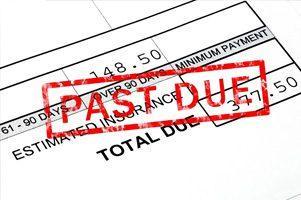The Importance of Debt Collection Agencies For Complying With the 7-in-7 Rule

Navigating the laws of debt collection is a complicated process. With strict rules, such as the 7-in-7 rule in place, the process is more complex.
What is the 7-in-7 rule, and how does it limit your business? Can a debt collection agency help? Let’s break it down in this blog, and explore why you should leave debt recovery to the professionals.
What Is The 7-in-7 Rule With Debt Collectors?
Under the Consumer Financial Protection Bureau’s Regulation F, the 7-in-7 rule puts debt collectors and collection agencies in Houston under a certain prohibition. You cannot contact a debtor more than 7 times within a 7-day period. This rule was set to limit harassment by reducing the communication frequency. It applies to all types of contact, including letters, calls, and emails.

Some of the key aspects of the 7-in-7 rule include:
- 7-Day Rolling Period: The 7-day period isn’t a calendar week. It’s a rolling period, which means if the initial contact is on a Wednesday, multiple calls on Thursday, Friday, and Saturday of the same week are included. A call on Monday will be considered the 8th contact within 7 days. This would be a violation.
- Applies to Individual Debt: The 7-call limit applies to every individual debt. A business debt collection agency like yours can make 7 calls about one debt and 7 more for a separate debt by the same debtor. These calls are applicable in the same 7-day period.
- Protection From Harassment: The rule’s objective is to protect consumers by limiting debt collectors from overwhelming them with constant contact.
- All Types of Contact are Included: The 7-call limit isn’t only about phone calls. Emails, letters, and text messages are also included.
- Follow-Up Contact: The rule is applicable to subsequent attempts to contact a debtor, even after a conversation. A debt collector cannot make 7 extra contacts in the next 7 days if they have already had a phone conversation about a specific debt.
How to Deal With Violations?
If you break the rule, there are penalties, which depend on the type and degree of violation. A savvy debtor may decide to sue, which can lead to lawsuits, fines, license suspension, and more. To avoid dealing with the FDCPA on your own, consult a debt lawsuit attorney.
However, it’s understandable if you don’t want to take the matter that far. After all, litigation costs money. That’s why for all debt collection purposes, work with a commercial debt collection agency in Houston, well-versed with rules and regulations, like Nelson, Cooper & Ortiz, LLC.
We have strategies and the latest debt collection processes in place that don’t violate any FDCPA rules and can recover your debt simultaneously.
To avoid legal issues, develop compliant strategies, and understand your rights, it’s better to work with us! We can help you navigate the 7-in-7 rule and ensure recovery. Contact us today to learn more.
 Know More
Know More Know More
Know More Know More
Know More Know More
Know More